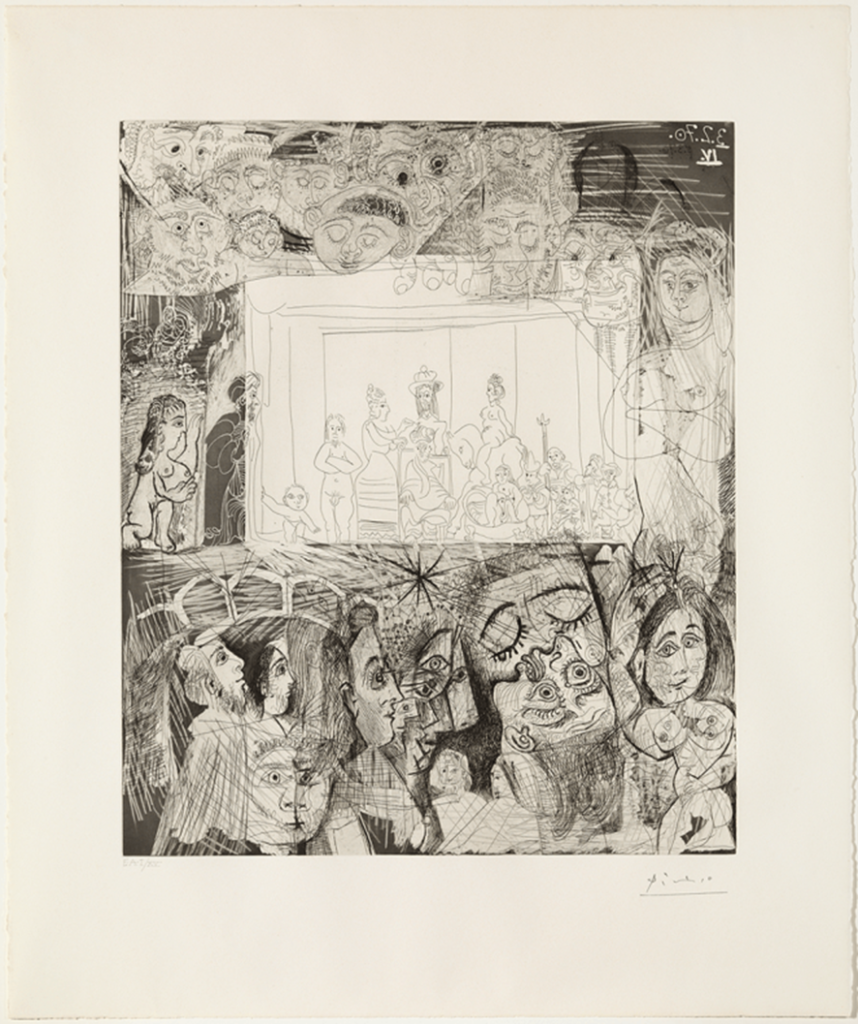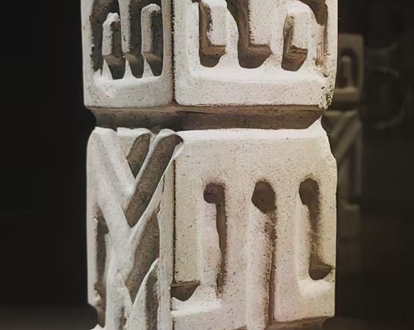(October 28, 2022)
Diego Tapia Figueroa Ph.D. and Maritza Crespo Balderrama, MA.
«The fundamental idea of social construction seems quite simple, but it is at the same time profound: everything we consider real has been socially constructed. Or more radically, nothing is real until people agree that it is.»
Kenneth Gergen, (2011, p.13)
«Social constructionism is a form of social inquiry… I find it helpful to recall Gergen’s assertion that any action and its description are subject to infinite revision.»
Harlene Anderson, (1999, p. 77 and p. 114)
«Relational ethics, from the perspective of social constructionism, includes dialogue, collaboration, and a whole range of relational practices. I need other people to coordinate with me the construction of the world; to be relationally responsible is to be in tune with the relationship itself.»
Sheila McNamee, (field diary, Mexico, ISI-2015)
We base ourselves for this series, on this thesis, from which we extract -by adapting- the proposals and invitations to a different relational position for the construction of the process of transformative therapeutic dialogue.
How are social constructionism and collaborative and dialogical practices useful for the relational co-construction of a training and therapeutic supervision space? Tapia Figueroa, Diego, Thesis (2018) for the Ph.D. with the Free University of Brussels (VUB) and the TAOS INSTITUTE of the United States.
The reflection on the meaning of relational perspectives in the processes of working with people and communities -with their local cultures- leads and encourages the development of questions based on recognizing contexts and relationships (Gergen, 1996); the uncertainty of the complex human condition (Shotter, 2001), relational responsibility and radical presence (McNamee, 2013).
Social constructionism, as will be seen below in the words of Kenneth Gergen (1996), offers possibilities to consistently embody action with reflection and with a new action, generating and expanding the possibilities of construction of meaningful alternatives. In this way, unprecedented possibilities are opened up for therapy, training, clinical supervision, research, and social transformation; this has ethical and political significance.
«What the constructionist perspective adds, however, are reflective and creative dimensions: it recognizes the contingent nature of one’s own constructions, is sensitive to their possible effects, and demonstrates an openness to generate alternatives (…) In the broadest sense, this means recognizing one’s quality as a member of a culture, and one’s continued participation in the multiple enclaves of significance. «(Gergen, 1996, p. 214).
We rescue the contributions of this social-constructionist orientation and collaborative and dialogic practices -as well as generative perspectives- which allow us to propose the construction of political ethics. Joint construction of a culture of good treatment, based on human rights, social responsibilities, and social justice; in respect for diversity, in the creation of spaces in which the multiplicity of different voices can be expressed freely and openly, capable of dialogue and generating a new invitation, for the co-construction of a more just, equitable and free society.
How can new stories be built together from relational ethics, feeling protagonists and authors of generative processes, capable of creating with joy and imagination, other possibilities of exercise and critical participation, is the question that also guides our professional practice.
We are recognizing, among ourselves, that when we want everything to be evident, rational, clear, and with meaning, our relationship with the world is impoverished. That what contributes to building trust, has to do with working for the well-being of all of us (therapists, operators, social workers, consultants, and networks of relationships). Respect is related to creating a space for the free expression of the multiple voices that are present and thus opens the possibility of jointly building other local worlds.
These are processes of joint construction, with people, consultants, students, and the community; we do it by talking to connect, understand, and be relationally the people we would like to be with ourselves and with others. Create in Ecuador, a network of relationships and connections, which sustains ideas and turns them into practices that generate transformations (hence the creation of IRYSE -Instituto Relacional y Socioconstruccionista del Ecuador and the biweekly publication of a reflective article on its web: https://iryse.org/)
It is a dance: the dialectic between creativity and freedom, a deconstruction with irreverence and respect at the same time, mobilizing innovative own resources with questions that generate one’s own dialogic relationship, thanks to the trust between all the participants involved.
According to Kenneth Gergen (1996, p. 180): «The constructionist approach does not consider identity -for one- as an achievement of the mind, but rather, of the relationship.» Meanings and identity are born in a context, starting from the relational principle; the self grows within the framework of exchanges and conversations in which we are inserted, and identity is the result of the narratives that each of us writes within such conversational dances.
Social constructionism emphasizes conversations, since, through language and meaning, each human being relates with others, thus building their own identity or inner voice. Every idea and every concept are born of social exchange mediated by language.
It is important that people can achieve things by sharing, little by little, in the therapeutic space, their achievements, doubts, their questions, and processes, in these meaningful encounters, to give other meanings to their social practices. «It is an attitude that invites us to tell us how things are for them, what worries them. John Shotter suggests that in this listening and responding process, we do not act in response to an inner plan, but we act sensitive ‘in’ a situation and do what the situation requires» (Anderson, 1999, p. 209).
By proposing reflective, open questions, with a respectful, interrogative, reflective tone, we seek to provoke the deployment of internal thoughts that connect and relate productively, the experience of these therapeutic encounters, with their social-professional practice, with their daily life. That, by questioning their own learning and resources, they can also value, recognize and legitimize the learning and resources of people and the contexts with which they relate.
As Harlene Anderson (1999, p. 151) invites us:
«The goal,» according to Gergen and McNamee, «of an exploration of relational responsibility is not to change one or another flawed person or resolve a conflict. Rather, it is about broadening the spectrum of voices – «relational realities» – that are accepted in conversation. Become more responsible and give more account of yourself (…). «
There is talk of relational responsibility as a possibility to expand conversations, take care of relationships, to accept the diverse. Take responsibility for building the quality of new dialogues and relationships that creatively generate new desirable futures.
The attention of social constructionism focuses on the complex forms of relationships within a culture, a local cultural context. It is understood that humans need each other for the joint construction of meanings, to be fair and responsible with others, and to prevent abuses. The ethical conceptions and political perspectives that are handled are, obviously, culturally and historically situated constructions. The words «ethics» and «politics» begin to have meaning only in the relational contexts in which one participates. It is dialogue that allows contextualizing the meaning of understanding and invites reflection; Harlene Anderson argues (1999): «Understanding is immersing ourselves in the horizon of another person, and it is a reciprocal process where one opens up to the other. It is an active process, an active dialogue. The horizon is not fixated» (p. 75).
In the therapeutic space, as well as in the training and supervision spaces that we facilitate, dialogues that generate collaboration are fostered; that implies that each person is fully present and that their contribution is equally appreciated, recognized, and valued; which produces a sense of belonging, which mobilizes a sense of participation, which in turn entails a sense of co-responsibility, as a result of this process. Our responses are clearly influenced and are the product of the relationship and interaction with the other and with the relational context.
In this context of critical reflection on uncertainty, the perspectives of social-relational constructionism open up options and alternatives to understand and act in different ways, to expand the ways of interrelating and how meanings are constructed.
Starting from the postulates of social constructionism, collaborative and dialogic, and generative practices, we seek to deepen the importance of the presence of the other, which is transformed into interrelation, to generate shared learning sustained in dialogue and listening and in recognition of local contexts.
«In this sense, social-relational constructionism invites us to adopt an attitude of infinite curiosity, to remain constantly open to what each tradition brings of richness and unthinkable combinations. If we admit that today’s realities depend on the agreements we reach today, enormous possibilities open up before us. We are not destined to repeat the past; Innovation through collaboration opens up new perspectives.» (Gergen, 2011, p 50.).
SUGGESTED BIBLIOGRAPHY
Anderson, H. (1999). Conversation, language, and possibilities.
A postmodern approach to therapy. Buenos Aires, Argentina Editorial Amorrortu.
Gergen, K (1996). Realities and relationships. Approaches to social construction. Barcelona, Spain. Editorial Paidós.
Gergen, J. (2011). Build reality. The future of psychotherapy. Barcelona, Spain: Editorial Paidós.
Gergen, K. & Gergen, M. (2011). Reflections on social construction. Barcelona, Spain: Editorial Paidós.
Gergen, K (2016). The Relational Self. Beyond the Self and the Community. Bilbao, Spain: Editorial Desclée de Brouwer, S.A.
IRYSE (2018) Blog of the Relational and Socioconstructionist Institute of Ecuador (IRYSE): https://iryse.org/
McNamee, S. (2013). The social poetry of research committed to relationships. Research as conversation. In Deissler, K. & McNamee, S. (Ed) Filo and Sofia in dialogue: the social poetry of therapeutic conversation (pp. 102-109). Ohio, USA: Ed. Taos Institute Publication.
Tapia Figueroa, Diego, Thesis (2018) for the Ph.D. with the Free University of Brussels (VUB) and the TAOS INSTITUTE of the USA.

English translation of Bruno Tapia Naranjo.


